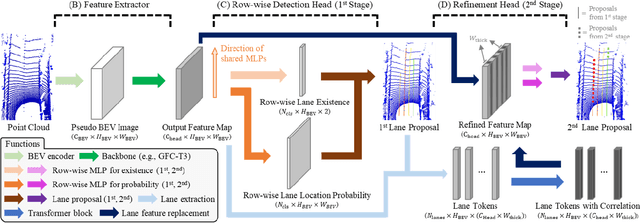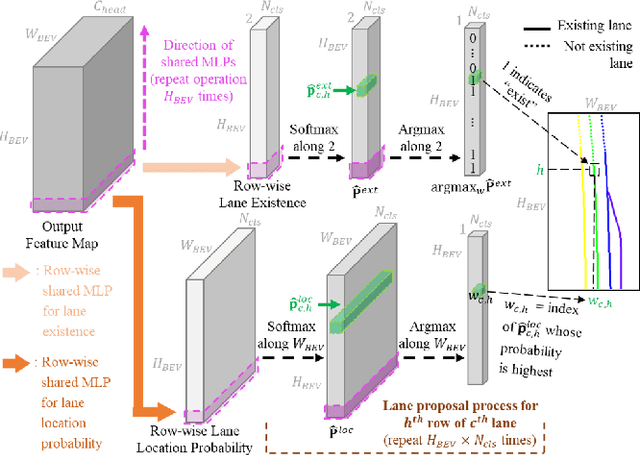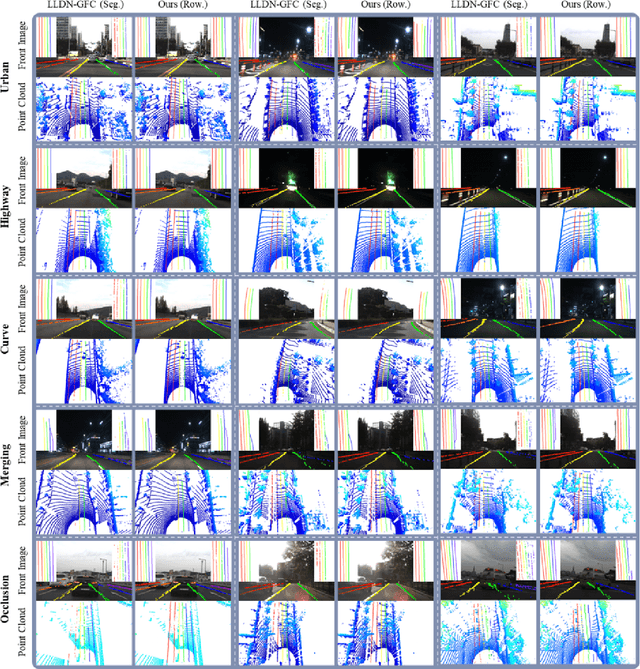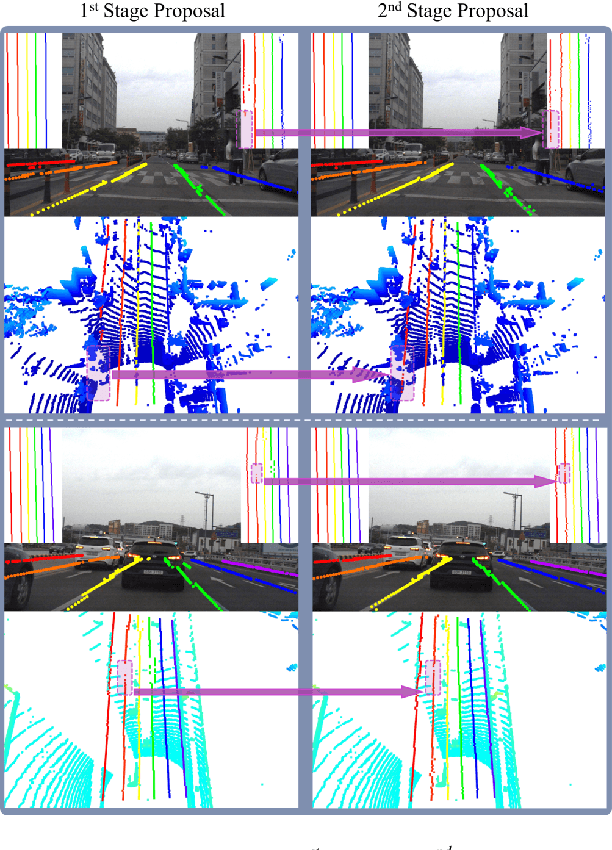Row-wise LiDAR Lane Detection Network with Lane Correlation Refinement
Paper and Code
Oct 17, 2022



Lane detection is one of the most important functions for autonomous driving. In recent years, deep learning-based lane detection networks with RGB camera images have shown promising performance. However, camera-based methods are inherently vulnerable to adverse lighting conditions such as poor or dazzling lighting. Unlike camera, LiDAR sensor is robust to the lighting conditions. In this work, we propose a novel two-stage LiDAR lane detection network with row-wise detection approach. The first-stage network produces lane proposals through a global feature correlator backbone and a row-wise detection head. Meanwhile, the second-stage network refines the feature map of the first-stage network via attention-based mechanism between the local features around the lane proposals, and outputs a set of new lane proposals. Experimental results on the K-Lane dataset show that the proposed network advances the state-of-the-art in terms of F1-score with 30% less GFLOPs. In addition, the second-stage network is found to be especially robust to lane occlusions, thus, demonstrating the robustness of the proposed network for driving in crowded environments.
 Add to Chrome
Add to Chrome Add to Firefox
Add to Firefox Add to Edge
Add to Edge